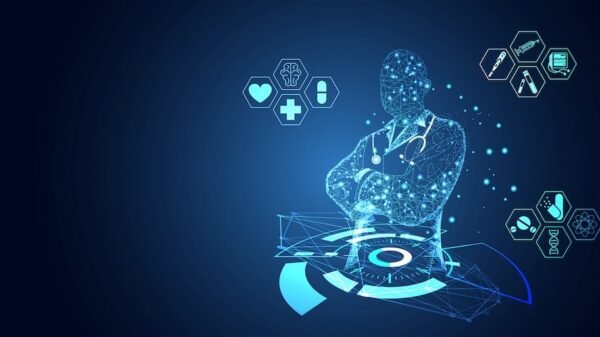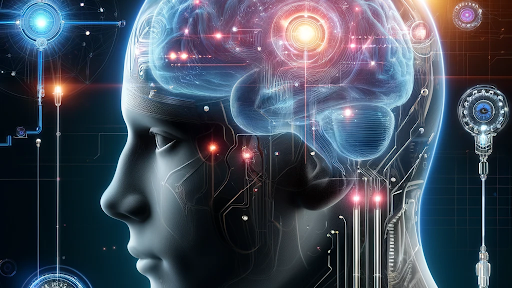Revolutionizing Administrative Tasks in Healthcare
Generative AI is redefining how administrative tasks are managed in clinical settings. Traditionally, physicians and nurses have spent a significant portion of their time on documentation, from writing patient notes to filling out billing forms. With the introduction of generative AI, these time-consuming tasks are now being automated. This shift not only improves productivity but also allows medical professionals to focus more on patient care rather than paperwork.
Streamlining Patient History Summaries
One of the most impactful uses of generative AI in clinical environments is the automatic summarization of patient histories. These tools can quickly review vast amounts of structured and unstructured data—from lab reports to doctor notes—and produce concise, relevant summaries. This functionality helps clinicians get up to speed on a patient’s condition faster and ensures that critical health insights are not overlooked during consultations or treatments.
Drafting Discharge Notes in Real-Time
Discharge planning is a crucial yet often tedious component of patient care. Generative AI has made significant strides in this area by enabling the real-time creation of discharge summaries. By analyzing clinical documentation, medication records, and treatment plans, AI models can generate clear and comprehensive discharge instructions that are ready for physician approval. This efficiency improves hospital workflows and shortens patient wait times upon release.
Making Complex Medical Language Understandable
Healthcare communication can be filled with jargon that is difficult for patients to understand. Generative AI bridges this gap by converting medical terminology into patient-friendly language. When used during consultations or through patient portals, this capability empowers individuals to better understand their diagnoses, treatment options, and care plans—fostering greater health literacy and compliance.
Enhancing Electronic Health Record (EHR) Efficiency
Integrating generative AI into electronic health record systems has made them more user-friendly and efficient. AI tools can automatically populate fields based on conversation transcripts or past medical entries, reducing the need for manual input. In addition, predictive text features suggest next steps or flag potential issues, thereby improving the accuracy and completeness of records.
Supporting Clinical Decision-Making
Generative AI doesn’t just streamline paperwork—it also supports better clinical decisions. By analyzing patient data and comparing it against large datasets and evidence-based guidelines, AI models can suggest potential diagnoses or treatment options. These suggestions act as decision aids, allowing clinicians to validate their judgments or consider alternative possibilities.
Reducing Physician Burnout
The administrative burden in healthcare is a well-known contributor to physician burnout. By automating routine documentation and communication tasks, generative AI alleviates this strain. Clinicians report feeling less overwhelmed and more satisfied with their work when they can spend more time engaging with patients and less time performing repetitive clerical duties.
Facilitating Interdisciplinary Communication
In complex care environments, smooth communication among various healthcare professionals is essential. Generative AI can produce clear summaries of patient cases that are shared across departments, ensuring continuity of care. Whether it’s a nurse preparing a shift handoff or a specialist reviewing a new referral, AI-generated summaries enhance clarity and collaboration.
Accelerating Medical Education and Training
Generative AI tools are also being used in the training of future healthcare providers. These platforms simulate patient scenarios, generate practice case studies, and provide instant feedback on documentation quality. This prepares students and residents for real-world clinical settings, improving both their documentation skills and diagnostic reasoning.
Ensuring Compliance and Data Security
With the adoption of AI comes the need for robust compliance and security measures. Leading AI developers in healthcare are building their platforms to adhere to standards such as HIPAA and GDPR. Features like automated audit trails, access controls, and data anonymization are embedded into these systems, ensuring that efficiency gains do not come at the cost of privacy.
Scaling Across Specialties and Facilities
Generative AI is proving to be adaptable across various medical specialties and care settings—from primary care clinics to specialized oncology centers. Customizable templates and learning algorithms allow AI tools to cater to the unique documentation needs of different departments, making them valuable assets across entire health systems.
Challenges and Ethical Considerations
Despite its many benefits, the integration of generative AI in clinical settings presents challenges. Issues such as algorithmic bias, over-reliance on AI outputs, and lack of transparency must be carefully addressed. It is crucial that these tools remain assistive rather than authoritative, with final decisions always resting in the hands of human clinicians.
Real-World Case Studies in Implementation
Hospitals across the United States, Europe, and Asia are already seeing the benefits of generative AI. For example, a pilot program in a New York hospital reduced the average time to complete clinical notes by 30%, while a UK-based NHS trust improved discharge process times by 40%. These outcomes demonstrate the tangible advantages of embracing AI technologies in healthcare.
Looking Ahead: AI as a Long-Term Clinical Partner
As generative AI continues to evolve, its role in healthcare will likely expand from documentation assistant to full-fledged clinical partner. Future developments may include AI-driven patient triage, personalized treatment suggestions, and real-time clinical alerts. The ongoing partnership between clinicians and AI systems will be key to creating more responsive, efficient, and patient-centered healthcare.
Conclusion: A Transformative Shift in Clinical Operations
Generative AI is no longer a futuristic concept—it is actively transforming the present-day healthcare environment. By automating documentation, enhancing communication, and supporting medical decision-making, it is elevating the standard of care while easing the administrative load on clinicians. As adoption grows, healthcare systems that leverage these tools effectively will be better positioned to deliver timely, informed, and compassionate care.



































